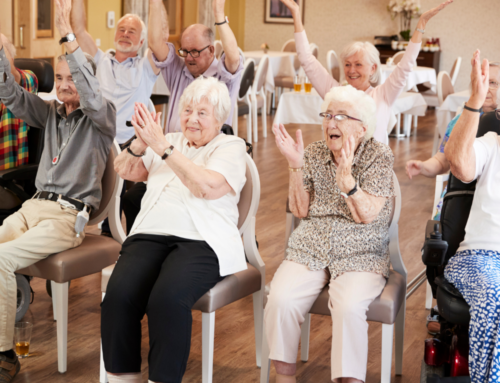Share This Story!
Puzzles Are The Brain’s Playground
As the body ages, the brain will start showing signs of slowing down. Paying attention to mental strength and cognition as well as physical capabilities in part of the aging process. Cognitive skills can be improved through brains games and memory inciting exercises. Below are 4 of the best puzzles for seniors to improve cognitive skills.
Cognition in seniors
Cognition is the brain’s ability to form and process thoughts, retain memories, and control movements. Cognitive health naturally declines as the individual ages. The severity of the changes depends on medical history and overall health. Reaction time, the ability to multitask, and memory retrieval are the most recognizable cognitive changes. Fortunately, vocabulary and language skills are often retained throughout the individual’s life.
Word puzzles
Word Puzzles are a fantastic way to keep the mind active and nimble. Word puzzles use both the left and right side of the brain, increasing a senior’s ability to learn and retain new words. Filling in the small boxes or circling the letter sequences helps enhance visual and special recognition. Crossword puzzles especially require brainstorming, problem-solving skills, and creative solutions. Often seniors will make solving word puzzles a group activity, reinforcing the benefits of socializing. Word puzzles can also double as a form of therapeutic medication.
Bingo
Bingo is a game that stimulates the senses. Hearing, touch/dexterity, and sight are all exercised when playing bingo. Bingo requires the players to be mentally alert and flexible during the game. An activity that can be played in small or large groups, bingo reinforces a sense of community and wellbeing. Laughter and bingo often go hand in hand. Laughter lowers blood pressure, increases dopamine/serotonin, improves heart health, and benefits immunity.
Jigsaw puzzles
Jigsaw puzzles work similarly to word puzzles by using both the left and right sides of the brain. A full brain activity that slows the decline of memory loss, jigsaw puzzles work to combat the onset dementia and Alzheimer symptoms. Visual perception and memory are required to recognize the picture and scanning for the pieces which fit together. Jigsaw puzzles work on motor skills through the picking up and movement of the small pieces. As memory loss increases, seniors can have difficulty interacting with others. Jigsaw puzzles can be a solo activity or done in a group, thus promoting a sense of community.
Chess
Chess is a game build around strategy and thinking outside of the box. Stimulating brain strength and information retention, chess has shown to lower dementia in active players. The strategy required by chess actively engages the brain, improving problem solving skills and improving overall mental plasticity. Requiring two players, chess is a way for the elderly to socialize. A smaller benefit of chess is the work on dexterity. Picking up and moving the various chess pieces can improve motor skills in the hands and arms.
Let the brain play
Keeping the mind active well into the golden years is essential. Brain training will not only improve the mental fitness of the senior but can help stave off memory related illnesses such as dementia and Alzheimer’s. Many puzzles require the use of local reasoning and hand/arm dexterity. The more puzzles done, the better. Incorporating a puzzle into the daily routine will improve the cognitive health of seniors.





